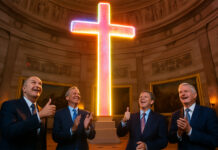
Grass Valley, CA — A local family arcade play park is working hard to ensure that current middle class children have the proper skills to compete in the ever-expanding and competitive gambling marketplace.
“Ever since Indian gaming came to California,” said Fun Park Assistant Manager Amanda Fischer, “we have seen an upsurge in middle class families wanting to make sure their kids can handle the hectic pace of all these new casinos. And creating our own token currency, it’s even easier to drain your wallet now. It’s all about teaching good, old-fashioned American liberty, personal responsibility and revolving credit skills.”
Although it is not yet recognized by the American Medical Association as a diagnosable disorder, video game addiction or compulsion is a rising concern among experts. According to the Iowa State University, recent studies suggest that 6 to 15 percent of all gamers exhibit signs that could be characterized as addiction. And although playing video games is not considered a pathological disorder, constant and compulsive game-playing can interfere with normal life activities like socializing, family life and in the case of mouthy teenage boys, hygiene and dietary habits.
“They’re filling a market need,” said Yale Professor James Badwater. “Although local video arcades have suffered since home gaming has become more and more sophisticated, the need for an adult-like gambling experience is still there. You just can’t get that casino feel of disorienting lights and noises in your living room that you can in an arcade.”
Many parents are concerned with the amount of time their children are spending on various multimedia devices. And although concerned, few seem to be doing anything about it.

“I don’t like all the time my teenage boy spends playing Minecraft,” said a somewhat resigned John Boyd of Penn Valley, CA. “We never see him. And he’s a monster if we pull him away from his games. But I have to admit, it’s an easy way to raise a teenager.”
As for the Fun Park, business is ticking up.
“We’ve expanded over the years beyond video games, but those continue to be the big money makers,” continued Ms. Fischer, “but we considered token-driven gaming something of a community service we’re providing to local families.






